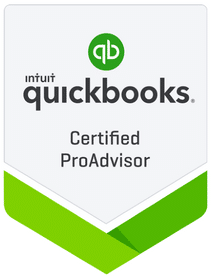- Patrick Roney
- (877) 503-8607
Follow Us :
Follow Us :
Proledge
September 25, 2010

In some states, the agencies are so aggressive in collecting their sales taxes that a higher portion of small businesses get sales tax audits than IRS audits. It is very easy to get yourself into trouble with sales taxes. At a high level, sales taxes are far simpler to understand than income taxes, but a number of issues make the matter murkier.
For starters, most CPAs won’t help you with your sales taxes. You’re mostly on your own. How do you decide which of your services/products are taxable, at what rate, state by state? There are sales tax consultants out there, but there are very few of them and they usually prefer helping you after the fact, once you are being audited. That’s where the real money is for them. For the most part, it is incumbent on the small business owner to grasp the nuances and research them.
Secondly, sales taxes are calculated as you go. With Federal taxes, you essentially don’t worry about it in QuickBooks until the end of the year. You feed the data to your CPA and the taxes are calculated. The calculations of the federal taxes are not baked into QuickBooks itself. However, for sales taxes, they need to be calculated as you charge or invoice your clients. That calculation will either happen in your point of sale or in QuickBooks. Either way, you will have to configure the system correctly from the get go. You can’t defer this to the end of the quarter or the year, because, if you didn’t collect enough sales taxes from your clients/customers, you’ll have to make up the difference from your own pocket when paying the state.
The third complication is that, in most states, coupled with the sales tax is the use tax, whereby your home state wants you to pay a sales tax on items that you purchased from out of state. For instance, if you bought supplies from Amazon, tax free, many states will expect you to pay them a sales tax on that purchase. Pretty much the only way to keep track of this correctly is to leverage QuickBooks.
QuickBooks has excellent features to help keep your sales taxes in order, however, they have two drawbacks:
In other words, give sales taxes their due attention in QuickBooks and don’t push the issue out “for later”. You can’t do it half way. You need to do it 100% correctly and right away. Many other components of QuickBooks can be tackled after the fact. Not sales taxes.


Fill out the form below to sign up to our Blog Newsletter and we’ll drop you a line when new articles come up.
Bookkeepers.
Professional. Affordable.
ProLedge is a bookkeeping services firm.
Copyright © 2024 All rights reserved.
Hello. Can we help you?